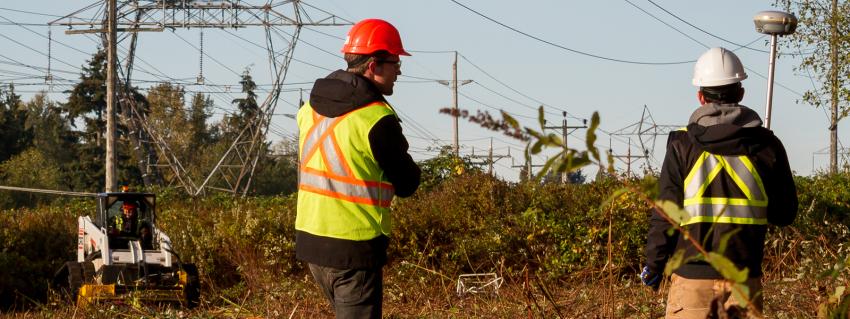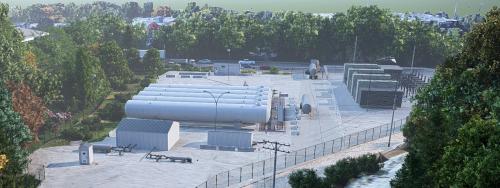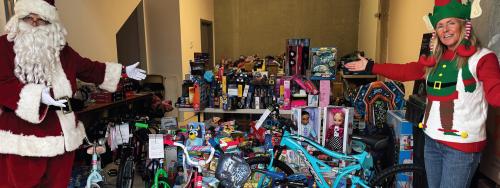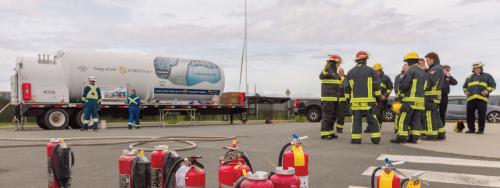Clearing the gas line right-of-way in preparation for the Surrey to Coquitlam Natural Gas Line project began in September. As with all of our projects, FortisBC wants local businesses and Aboriginal communities to benefit from the economic and employment opportunities that this project will provide.
The company we chose to do the clearing work is Inlailawatash Limited Partnership—a local business owned by the Tsleil-Waututh Nation. Situated on the Burrard Inlet in North Vancouver, the Tsleil-Waututh community—“The People of the Inlet”—have considered themselves stewards of their ancestral lands for thousands of years. Inlailawatash is committed to incorporating the community’s holistic values into its work.
Holistic values guide work practices
The vegetation clearing for our upgrade project—which initially involves the removal of blackberry bushes, small trees and shrubs, and eventually some mature trees—will require the use of heavy equipment. This is an example of a situation where, as a First Nation company, Inlailawatash will be guided by their holistic values. “We ‘walk our talk’ on projects,” says Andrew Spence, senior manager with Inlailawatash. “When using heavy equipment, our practices include using environmentally friendly chain saw oil, or vegetable oil rather than something that would cause harm if there were a spill.”
When doing restoration work, their preference, especially around creeks and areas of environmental value, is to reestablish native plant communities that have been overrun by invasive species––and they don’t have far to go to find out what plants used to be there. “Some of our community have spent their whole lives walking the territory and are a generation or two down from their ancestors who lived off the land,” says Andrew. “We’re able to tap into that traditional knowledge.”
Inlailawatash was established in 2004 as an independent company to manage forestry activities on behalf of the Tsleil-Waututh Nation. When the forestry industry was in a slump, the company turned to urban forestry, specifically vegetation management, as a way to generate business and continue providing employment opportunities for its community members.
The company initiated a vegetation management training program and an arborist apprenticeship program because they wanted to be ready for all opportunities. Andrew says, “When the forestry business started up again, they wanted a trained work force that could switch from one to the other.”
Inlailawatash currently employs eight Tsleil-Waututh Nation community members on its vegetation management crews, including five on the arborist apprenticeship program. Earlier this year, Chris George-Thomas became the first Tsleil-Waututh Nation community member to complete the arborist program with Inlailawatash and gain certification as a Certified Utility Arborist.
In addition to vegetation and tree management services, the company has since expanded to include four other areas of expertise: ecosystem restoration; archeological and cultural services; GIS, mapping and information management; and renewable resource services.
Small company with large reach
Although the company is small in size—they have 15 employees— they have a large reach through collaborations and partnerships. When extra staff or expertise is needed, they’re careful to hire companies that have similar environmental and stewardship values. Often, this means looking to other First Nations for help. They recently hired members of the Lil’wat First Nation when additional vegetation crews were needed on our project.
The Surrey to Coquitlam Natural Gas Line project involves adding a backup line to the existing transmission lines in Surrey and Coquitlam. The work will occur within existing utility corridors in those communities. So far, 51 businesses from nine local communities are working on the project.



